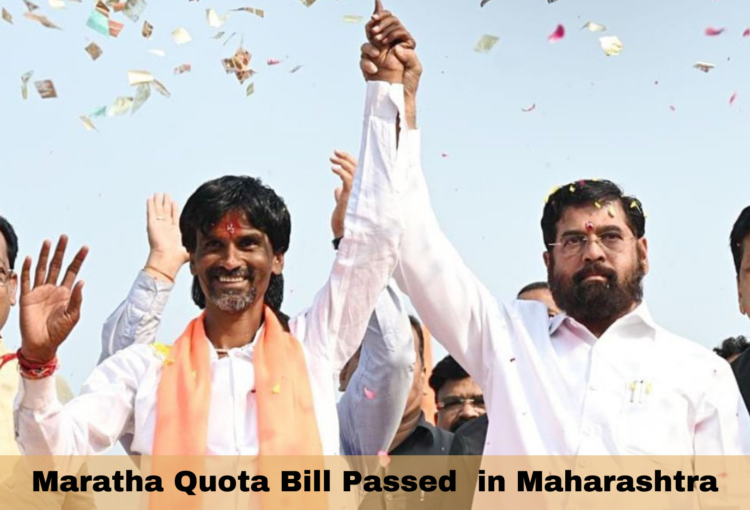In a bold move touching the lives of millions, the Maharashtra Assembly unanimously passed the Maratha Reservation Bill on February 20, granting 10% reservation to the Maratha community in government jobs and education. Decades-long struggles have culminated in legislative action, acknowledging the socio-economic and educational backwardness of this substantial yet marginalized community, as demonstrated in a report by the Maharashtra State Backward Class Commission (MSBCC).
Background
The quest for reservations in jobs and education for the Maratha community saw a fleeting realization in 2018, catalyzed by activist Manoj Jarange Patil’s hunger strike and subsequent advocacy efforts. The recent special Assembly session, prompted by the report of the Maharashtra Backward Class Commission (MBCC) chaired by Justice (Retired) Sunil Shukre, paved the way for the crafting of the Maratha Reservation Bill. Chief Minister Eknath Shinde ensured the bill’s integrity, affirming that it would not unfairly impact Other Backward Classes (OBCs) and would withstand legal scrutiny.
The MSBCC Report: Revealing the Ground Reality
Central to the legislative decision was the comprehensive survey conducted by the MBCC, reaching approximately 2.5 crore families and exposing the intricate socio-economic and educational disparities faced by the Maratha community. The report underscored the “exceptional and extraordinary” backwardness prevalent among Marathas, who constitute a significant 28% of Maharashtra’s population. These findings provided compelling grounds for the 10% reservation, transcending the traditional 50% quota limit.

Manoj Jarange Patil Ends Protest as Maharashtra Government Accepts Marathas’ Quota Demand
Beyond the 50% Ceiling: Observations from Other States
The Maratha reservation initiative has sparked discussions regarding quota limits breached in other states. Drawing attention to Tamil Nadu’s 69% reservation, which surpasses the 50% cap set by the Apex Court’s Indra Sawhney ruling, the bill finds precedence despite the court’s nullification of the 2018 Maratha reservation law. Chief Minister Shinde expressed confidence in the reservation’s legal foundation, citing the examples of 22 Indian states, including Haryana, Bihar, West Bengal, and Gujarat, which exceed the 50% quota threshold.
Meeting the Need: Observations from the Commission Report:
Of particular significance are the MSBCC report’s revelations regarding the living conditions of the Maratha community. With over 21.22% living below the poverty line, surpassing the statewide average, the report underscores the social, educational, and economic challenges faced by Marathas, particularly in accessing higher education and diversifying income sources beyond agriculture. The significant proportion falling under the non-creamy layer category highlights the urgent need for affirmative action through reservation provisions.
Conclusion
The enactment of the Maratha reservation bill represents a significant step forward in addressing the socio-economic disparities and historical injustices faced by the Maratha community. This legislative endeavor promises to uplift and integrate Marathas into the mainstream, paving the way for enhanced social mobility and economic empowerment. As Maharashtra forges ahead with progressive legislation aimed at promoting social equity and affirmative action, it heralds a renewed commitment to inclusive development and societal advancement.
Do you want to publish your own book?
We will help you get the best options for book publishing related services in India that helps you to self publish your book professionally. Complete set of publishing services. From designing book covers to publishing, promotion to distribution we provide them all. Click here to get free call back from our team consulting you regarding the publishing costs and the process.
Read Some of Our Other Blogs:
How to Protect Your Juvenile Rights in India
Marital Rape – An Unrecognized Crime in India
Unveiling the ambiguity regarding bar on ‘Anticipatory Bail’ under SC/ST (POA) Act, 1989
Development in interpretation of ‘sedition’ law in India